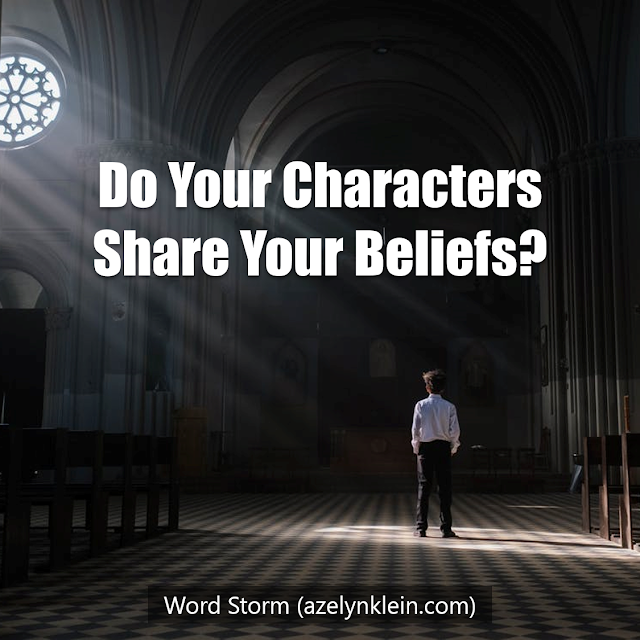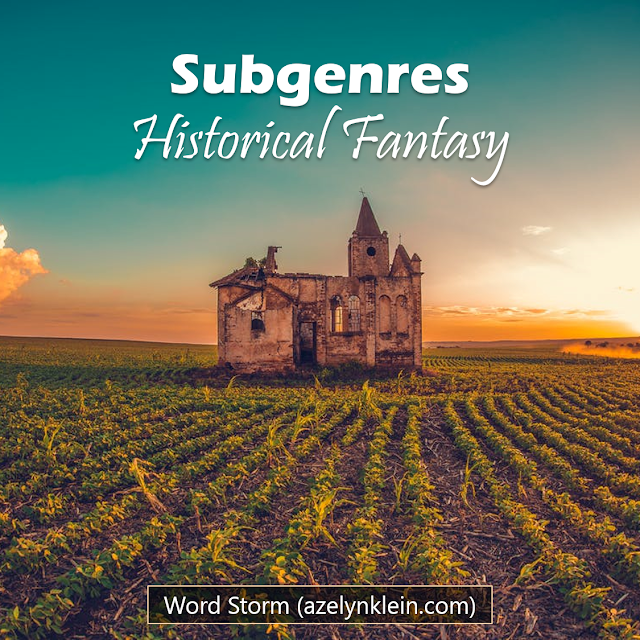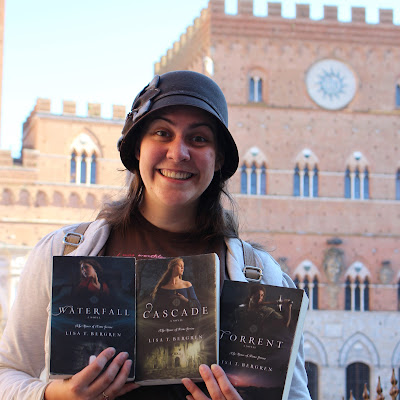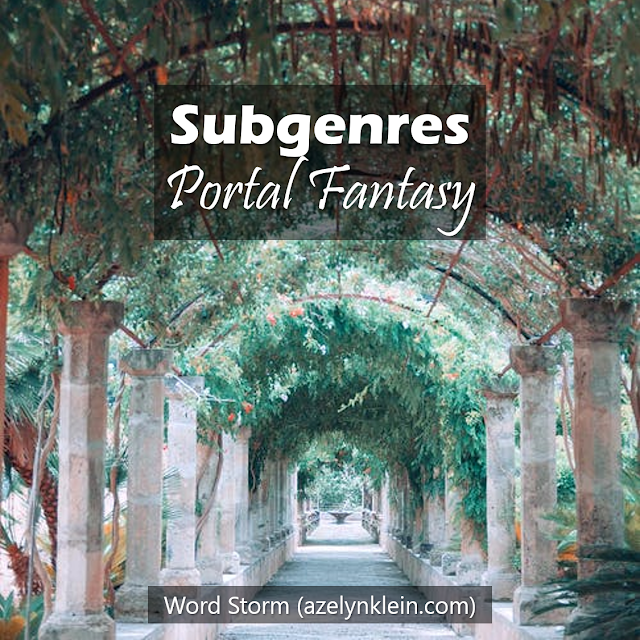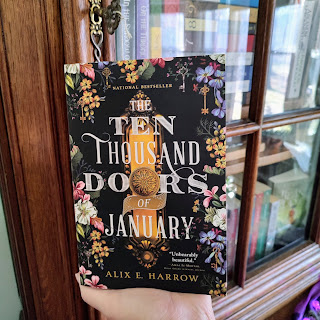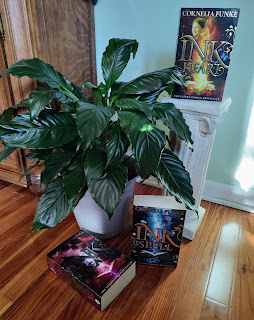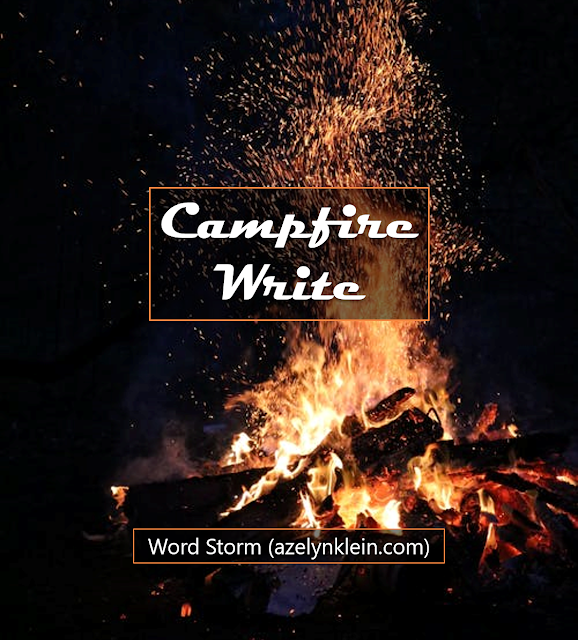What a delightful year for books!
I
found a great indie bookstore in my town that always carries a good stock of
poetry. Now the owner recognizes me and recommends poetry collections. Yay!
Once
I started working full time, I didn’t have as much time to read, so I’ve had to
adapt. That is, I stopped reading books if I wasn’t interested in. *gasp* I
have so many I didn’t finish… But that’s okay. Life’s too short to force myself
to read something I don’t enjoy.
As
for those I did enjoy—here they are!
Goal: 1 Book 700+ pages
The
Well of Ascension
and The Hero of Ages by Brandon Sanderson—I didn’t realize how long
these books were until I started rereading them. They were delightful, of
course. There’s talk of one of Sanderson’s books getting a show or movie
adaptation, and I hope it’s this series! I’d like to share it with my
non-reader friends.
The
Count of Monte Cristo
by Alexander Dumas—I found the longest book on my TBR and started listening it
to it because I was bored. No, seriously. Turns out, I really enjoyed it! Instead
of simply listening to during my commute to and from work, I listened to it a
bunch at home too. (Not done yet…)
Goal: 2 Writing Books
The
Emotional Craft of Fiction
by Donald Maass—I don’t think I’ve enjoyed a writing book this much before! Not
only is it instructional, but it has some great examples. Since I listened to
the audio book while I driving, I may have to reread it to actually apply it to
my own novels. Writing emotion into my stories is something I’ve struggled
with, but now I’m inspired! (Not done yet. I intend to finish before the end of
the year.)
Goal: 3 Books Published in 2022
Squire by Sara Alfageeh and Nadia
Shammas—this graphic novel is gold. The cover drew me in at first. I thought the
story would be okay. I was wrong. It was great! I devoured it in one sitting,
then went out and bought a copy and have since reread it.
An
Arrow to the Moon
by Emily X. R. Pan—I was disappointed by this one, unfortunately. While I
enjoyed the magical-realism-contemporary-mix, the ending felt too confused and
rushed. It didn’t make sense to me.
I
Must Betray You
by Ruta Sepetys—I’ve found my new favorite historical fiction author!
Seriously, I’ve read all her books now. I devoured this in a day. Sepetys’
writing style continues to be stunning. As a teacher I always appreciate her
perspective on often untold stories across Europe. This particular story was
heartbreaking.
Family
of Liars by E.
Lockhart—If you don’t mind a book that’s depressing and a story that revisits a
setting that you may have visited before, then this book is for you. Sequel to We
Were Liars (see below). I didn’t quite enjoy this one as much as the first
because it lacked the connection between the characters that I enjoyed in the
first.
Goal: 3 Rereads
Light
at the Bottom of the World
(Light of the Abyss, book 1) by London Shah—Wow, I enjoyed this book
more the second time than the first! It hit differently than the first time too.
The first time I read it was pre-pandemic. After the pandemic, wow, this
society seems a lot like our own. I particularly enjoyed the underwater sci-fi
elements, and the themes are spectacular too! (See the sequel in the category
below.)
The
Mistborn Saga by
Brandon Sanderson—the final book of the second arc, came out this year, so of
course, I had to reread the entire series. I told myself I was going to wait
until June to start the books, but then I started in May. Whoops! The world
building, the magic system, the characters, the themes! Though I prefer the
first arc, I enjoyed the second arc as well. I’m still waiting for the final
book though. Right now, I’m fourth in the hold line at my library…
We
Were Liars by E.
Lockhart—Picked this one up when I started getting tired of fantasy. This
contemporary was just what I needed. A beautiful yet heartbreaking read. Now I
want to write an inspirational quote on my hands to better remember it.
Goal: 5 Books I Own (not rereads)
I
need to categorize these better next year. There’s quite a bit of overlap.
Journey
to the Heart of the Abyss
(Light of the Abyss, book 2) by London Shah—First of all, can we take a
moment to appreciate how Shah names the duology after both books instead of
just the first book. Thank you, Shah. Thank you! As for the story itself, I
didn’t care for the sequel as much as the first one. Oh, well.
A
Silent Voice
(books 1-7) by Yoshitoki Ōima—Technically, I’ve read the first three books
before, but not the final four! Yes, I watched the anime first. I like both for
different reasons. Heartbreaking yet beautiful and powerful.
Twenty
Thousand Leagues Under the Sea
by Jules Verne—see category below.
Collected
Haiku of Yosa Buson—see
category below.
Timely:
A Phoenix Fiction Writers Anthology—see
final category.
A
Christmas Carol
by Charles Dickens—see category below.
The
Moon Before Morning
by W.S. Merwin—another poetry collection. Not as much imagery or as enthralling
as the haiku collection but enjoyable nonetheless.
Goal: 5 Books by 5 Different Non-American Authors
The
Cat Who Saved Books
by Sōsuke Natsukawa—Translated from Japanese. This one was fun and the themes
were interesting, though the writing style was a little dull. I’m going to
blame it on translation. Would recommend if you like cats and labyrinths and
books.
Piranesi by Susanna Clarke—British
fiction. Hey, look! Another book about labyrinths! I’m sensing a theme… I really
enjoyed this one. It’s got a nice, meandering pace that certainly isn’t
everybody’s cup of tea, but it certainly was mine. A portal fantasy about another
world with an unreliable narrator who is incredibly smart but also a little
crazy. It’s got a similar feel as The Slow Regard of Silent Things.
Daughter
of the Moon Goddess
by Sue Lynn Tan—Technically this one was also a 2022 release, but I put it here
because why not? This book is actually the second one I’ve read this year that
focuses on the Chinese legend of the moon goddess, and I definitely enjoyed
this one more! It was a little slow and meandering, so it took me a bit to
finish. Definitely worth the read.
Twenty
Thousand Leagues Under the Sea
by Jules Verne—Translated from French. A classic for a reason. I enjoyed this
one way more than I thought I would. I’ve heard Verne’s work described as
“boring” before, but I quite enjoyed this one. My eyes did glaze over a bit
during the paragraphs with all the fish, though. I was first introduced
to the story when I was a kid, but I’d never read the original before now.
Definitely recommend!
Collected
Haiku of Yosa Buson—Translated
from Japanese with the original Japanese transcribed on the left. What a
delightful collection! I picked up this beauty during a book sale at a local
bookstore and enjoyed it far more than I thought I would. I think I might be a
haiku person. Some are complex, some are simple. All are short and quick reads.
The book is broken up into seasons, starting with spring, ending with winter.
What’s more, there’s even a whole mini-section on frogs. This is the kind of
content I’m here for!
A
Christmas Carol
by Charles Dickens—British fiction. I actually read this one twice. Once for lesson
planning, and again with my class. While the language was a bit dense for my
lower-level readers, many of them enjoyed the story and getting the chance to
watch the movie at the end of the year.
The
Count of Monte Cristo
by Alexander Dumas—Unabridged and translated from French. See first category.
Goal: 1 Short Story Collection
Timely:
A Phoenix Fiction Writers Anthology—Another
enjoyable collection by the Phoenix Fiction Writers! I took my grand time with
this one, but that’s part of the fun of anthologies like this one. You don’t
have to read it all in one sitting. A story at a time will do. My favorites
were probably “Adamant” by Beth Wangler and “Daughter” by E.B. Dawson.
Total books: 19/20
Other Notable Books
Alone
by Megan E.
Freeman
The
Way of the House
Husband by Kousuke Oono
The
Expanse series
by James S.A. Cory
Year
of the Reaper by
Makiia Lucier
The
Rithmatist by
Brandon Sanderson
The
Fountains of Silence
by Ruta Sepetys
Squire by Sara Alfageeh and Nadia
Shammas
No
Beauties or Monsters
by Tara Goedjen
Himawari
House by Harmony
Becker
Ahimsa by Supriya Kelkar
The
Surprising Power of a Good Dumpling
by Wai Chim
Visual
Learning: Physics
by Kurt Baker
You can check out the full list of books I read on my Year in Books page on Goodreads.
If
you’ve made it this far, I’m taking a step back from blogging. I still intend
to post my reading resolutions, end of the year reviews, and writing-news. But
for the most part, I’ll be positing on Instagram instead. Thank you for
following me along this crazy blogging journey.
Happy
reading!
***
Let’s
chat! Have you read any of these? What are some of your favorite books from
2022?
Similar posts: 2022 Reading Resolutions, 2021 Books in Review, and 2021 Reading Resolutions


.png)
.png)
.png)
.png)


